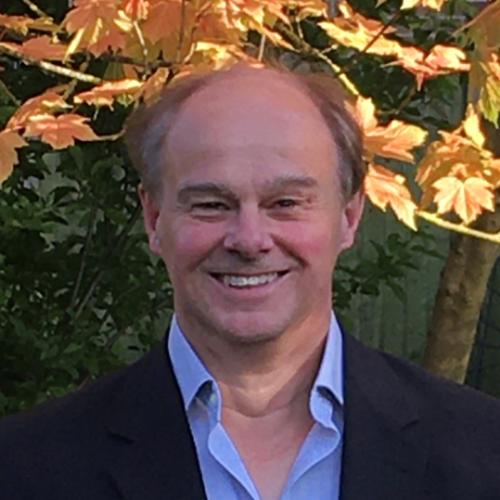Speaker profile

Dr Martin Braddock
BSc, PhD, FRSB, FRAS
Available for booking

Radcliffe on Trent, Nottinghamshire, England

80 miles travel distance

Professional Astronomer

Academic Lecturer
Summary
Martin is a professional scientist and former Royal Society University Research Fellow at the University of Oxford. He is founder and director of GENIXICONSULTING LTD.
Full biography
Dr Martin Braddock is a professional scientist and project manager working in the field of drug discovery and development with 36 years’ experience of working in academic institutes and large corporate organisations. He holds a BSc in Biochemistry and a PhD in Radiation Biology (from the Radiation Biology Unit, Atomic Energy Research Establishment, Harwell Oxfordshire), is a former Royal Society University Research Fellow at the University of Oxford.
In 2009, Martin was awarded the title of Fellow of the Royal Society of Biology for outstanding contribution to Bioscience and in 2012 he was a recipient of an Alumnus Achievement Award from the University of Salford for distinction in science. He is currently on the editorial committee of eleven scientific journals. He has published widely and is author on over 180 peer-reviewed publications, is a member of several scientific advisory boards, a listed inventor on 8 patents and has given lectures all over the world.
He has a serious interest in astronomy and in 2015 was elected Fellow of the Royal Astronomical Society. He is passionate about all aspects of Astronomy, Cosmology and Astrobiology, holds University qualifications in Cosmology, Astronomy and Planetary Sciences and Astrobiology from the University of Central Lancashire and Open University and is working towards an MSc in Space Science and Technology.
Martin is an active committee member of the Mansfield and Sutton Astronomical Society and Newton’s Astronomical Society at Woolsthorpe, supporting these registered charities at public open events and regular society meetings.
He has given many talks to different astronomy societies and is very interested in effects of gravitational extremes on animal and human physiology and in the discovery and development of Space Medicine for which his career history provides experiences from all stage of medical research, including how medicines are handled by the human body. Further interests include the reality of extra-terrestrial colonisation and society build, the potential for human enhancement to facilitate deep space travel and exploration and the development of robotics partnered with artificial intelligence.
As a life-long learning science enthusiast and a great fan of online learning, he sees it as his duty to help inspire the next generation of potential young scientists and to help us all understand the fascinating Universe we live in!
In September 2024, he set up his own consulting business GENIXICONSULTING LTD and works with universities, European funding bodies and corporations to help the better develop the 'Science Behind their Business'
My background can be found in LinkedIn at: linkedin.com/in/martin-braddock
Affiliations
Lectures
The Rise, Fall and Renaissance of Artificial Gravity
The History and Future of Space Medicine
Sub-Glacial Life in Lake Vostok - a Model for Exploring Life on Enceladus
Dark Matter and Energy and the Formation of the Universe
Extra-Terrestrial Life - Possibilities and Plausibility’s
Enceladus, Europa and the TRAPPIST-1 Systems as Potential Sources of Life
Constraining the Boundaries for Exoplanetary Life: A case Study - Proxima b
Detection of Biosignatures in the Atmosphere of Exoplanets
The Challenges Facing Astronauts Physically and Medically on Long Journeys
The History of the Telescope 1609-1668 and the Importance of Physics for Telescopes Today
Exoplanets and Constraining the Boundaries for Potential Habitability
Extremophiles and why There Must be Life Elsewhere in the Universe
The Fermi Paradox: Drake and Seager Equations and Their Modifications
Meteors: What They are and How to Detect Them by Radio-astronomy
Limitations for Colonisation and Civilization Build and the Potential for Human Enhancements
Countdown to Mars – Challenges for Colonisation
Here come the Martians - the Genesis of Homo Martis
The Best of Both Worlds – Space, Drug Discovery and Drug Development
Future Concepts for Space Exploration and Colonisation – Life Jim but Not as we Know IT
Complexities of Interstellar Travel and the Need for Space Medicine
Europa - a Candidate Moon to Harbour Life?
Quantum Mechanics and Paganism
The Fermi Paradox and the Search for Extra-terrestrial life
Lunar Regolith – Challenges for Agriculture and Human Health
Publications
The Fermi paradox and the search for extra-terrestrial life.
Braddock M (2016) Pop. Astron. Mar-Apr, 2016.
Ergonomic challenges for astronauts during space travel and the need for space medicine (2017).
Braddock M. J. Ergonomics 7: 221. doi: 10.4172/2165-7556.1000221.
Artificial gravity: small steps on the journey to the giant leap (2017).
Braddock M. J Space Expl. 6: 137-145.
Concepts for deep space travel: from warp drives and hibernation to world ships and cryogenics (2018).
Braddock M. Biosci, 12: doi: 10.19080/CTBEB.2018.12.555847.
Factors driving benefit and risk for astronaut health on deep space missions (2018).
Braddock M. Occup. Med. Health Aff. 6: e114. Doi:10.4172/2329-6879.1000e114.
Exercise and ergonomics on the International Space Station and Orion spacecraft (2018).
Braddock M J Ergonomics Res. 1: DOI:10.4172/JEOR-104.
Next steps in space travel and colonization: terraforming, ectogenesis, avatars and nano spacecraft (2018).
Braddock M. Signif. Bioeng. Biosci. 2(4) doi:10.31031/SBB.2018.02.000541
From target identification to drug development in space: using the microgravity assist (2019).
Braddock M. Curr. Drug Disc.Technol. 16:1, doi:10.2174/1570163816666190112150014
Why space colonisation will be fully automated (2019).
Campa R, Szocik K, Braddock M. Technological Forecasting and Social Change 143:162-171.
Why human enhancement is necessary for successful human deep-space missions.
Szocik, K, Braddock M. (2019). The New Bioethics doi.org/10.1080/20502877.2019.1667559
Ergonomic constraints for astronauts: challenges and opportunities today and for the future
Braddock M, Szocik K., Campa R. (2019). Contemporary Ergonomics and Human Factors 2018. Proceedings of the International Conference on Ergonomics & Human Factors 2019, Stratford-Upon-Avon, Warwickshire, UK, 29 April -1 May 2019, 1st Edition.
AI Case Studies: Potential for human health and space exploration and colonisation and a proposed superimposition of the Kubler-Ross change curve on the hype cycle.
Williams, M. and Braddock, M. (2019). Studia Humana 8: 3-18.
Tissue Engineering and Human Regenerative Therapies in Space: Benefits for Earth and Opportunities for Long Term Extra-Terrestrial Exploration
Braddock, M. (2019). Innovations Tissue Eng Regen Med. 1: ITERM.000512.2019.
Application of socio-technical systems models to Martian colonisation and society build.
Braddock, M, Wilhelm, CP, Romain, A, Bale L, Szocik, K. (2019). Theoret. Issues Ergonomics Sci. 21:131-152.
Visions of a Martian future: the evolutionary, ethical, anthropological and psychological challenges of a permanent Mars settlement (2020).
Szocik, K, Abood, S, Impey, C, Elvis, M, Shelhamer, M, Haqq-Mistra, J, Oviedo, L, Persson, E, Capova, K, Braddock, M. Futures 117: article 102514.
Visions of a Martian future: the evolutionary, ethical, anthropological and psychological challenges of a permanent Mars settlement (2020).
Szocik, K, Abood, S, Impey, C, Elvis, M, Shelhamer, M, Haqq-Mistra, J, Oviedo, L, Persson, E, Capova, K, Braddock, M. Futures 117: article 102514.
Future space missions and human enhancement: medical and ethical challenges.
Szocik, K., Shelhamer, M., Braddock, M., Cucinotta, F.A., Impey, C., Worden, P., Peters, T. Cirkovic, M., Smith, K.C., Tachibana, K., Reiss, M., Norman, Z., Gouw, A. & Munevar, G. (2020). Int. J. Astrobiol. (submitted).
The potential of artificial intelligence in creating smart city mobility
Lysenko-Ryba, K., Sabina, K., Szocik, K., Dobrochna, M. & Braddock, M. (2024). Cities (submitted).
Managing Wounds and Injuries in an Off-World Environment.
Braddock, M. (2023). Managing Wounds and Injuries in an Off-World Environment. In: Seedhouse, E., Shayler, D.J. (eds) Handbook of Life Support Systems for Spacecraft and Extraterrestrial Habitats. Springer, Cham. https://doi.org/10.1007/978-3-319-09575-2_220-1
Potential for Lunar and Martian regolith to support agriculture.
Braddock, M. (2023). Potential for Lunar and Martian Regolith to Support Agriculture. In: Seedhouse, E., Shayler, D.J. (eds) Handbook of Life Support Systems for Spacecraft and Extraterrestrial Habitats. Springer, Cham. https://doi.org/10.1007/978-3-319-09575-2_219-1
Hazards of Lunar Regolith for Respiratory, Central Nervous System, Cardiovascular and Ocular Function (2021)
Braddock M. In: Rappaport M.B., Szocik K. (eds) The Human Factor in the Settlement of the Moon. Space and Society. Springer, Cham. https://doi.org/10.1007/978-3-030-81388-8_9., p141-157
. Synthetic Biology for Human Space Missions: Ethical Issues and Practical Applications.
Szocik, K., Braddock M (2022). Astropolitics DOI: 10.1080/14777622.2022.2145192.
Our partners and guides for working in extreme environments – humanoid robots: how comfortable do we feel?
Braddock, M. (2022). J. Biotech. Biores. 4(2). JBB. 000581. 2022
Design Architecture for 3D Printing a Lunar Habitat
Flinders, L., Grainger, J., Rich, B., Clark, H., Braddock, M. (2022). ROOM The Space Journal 1(31): 90-97.
Extremophiles as the blueprint for Universal life.
Hayat, M., and Braddock, M. (2021) ROOM Space Journal 4(30): 64-69.
Sustaining resources for Homo martis: the potential of synthetic biology for the settlement of Mars
. Sharpe, R. and Braddock, M. (2021). Studia Humana 10:3, 1-16
Back to the future: the rise of human enhancement and potential applications for space missions.
Cahill, B. and Braddock, M. K (2021). Studia Humana 10:4, 1-6.
A short history of the discovery of black holes.
Braddock, M. (2021). Studia Humana 10:1 1-4.



